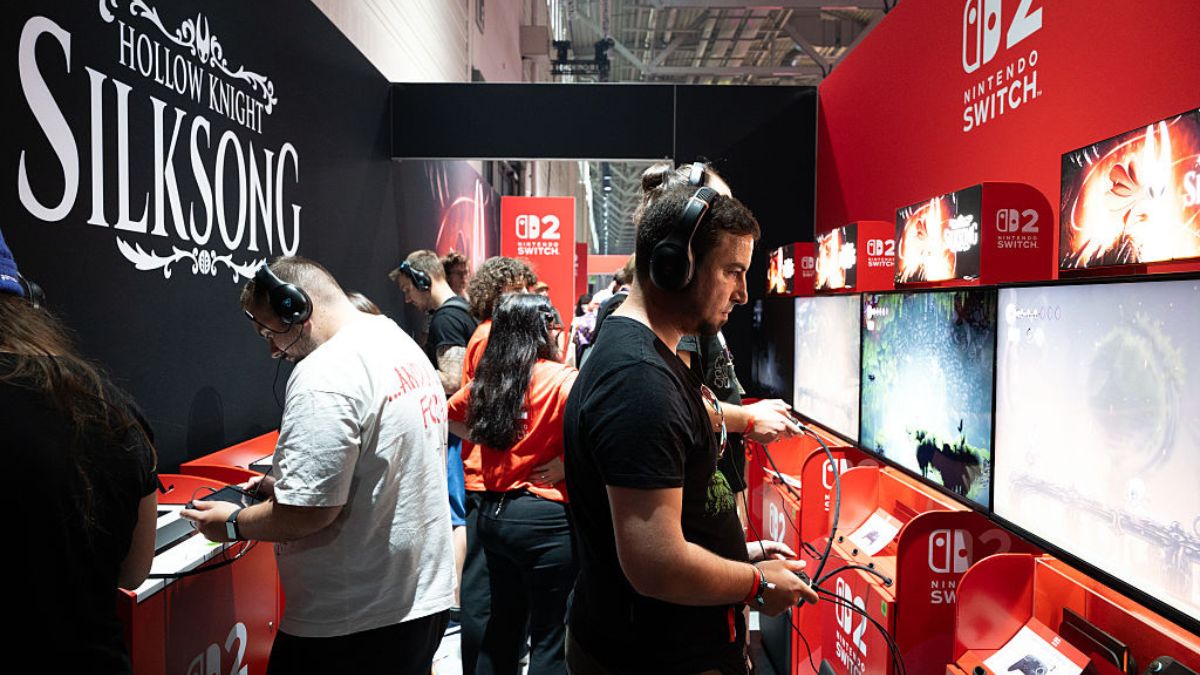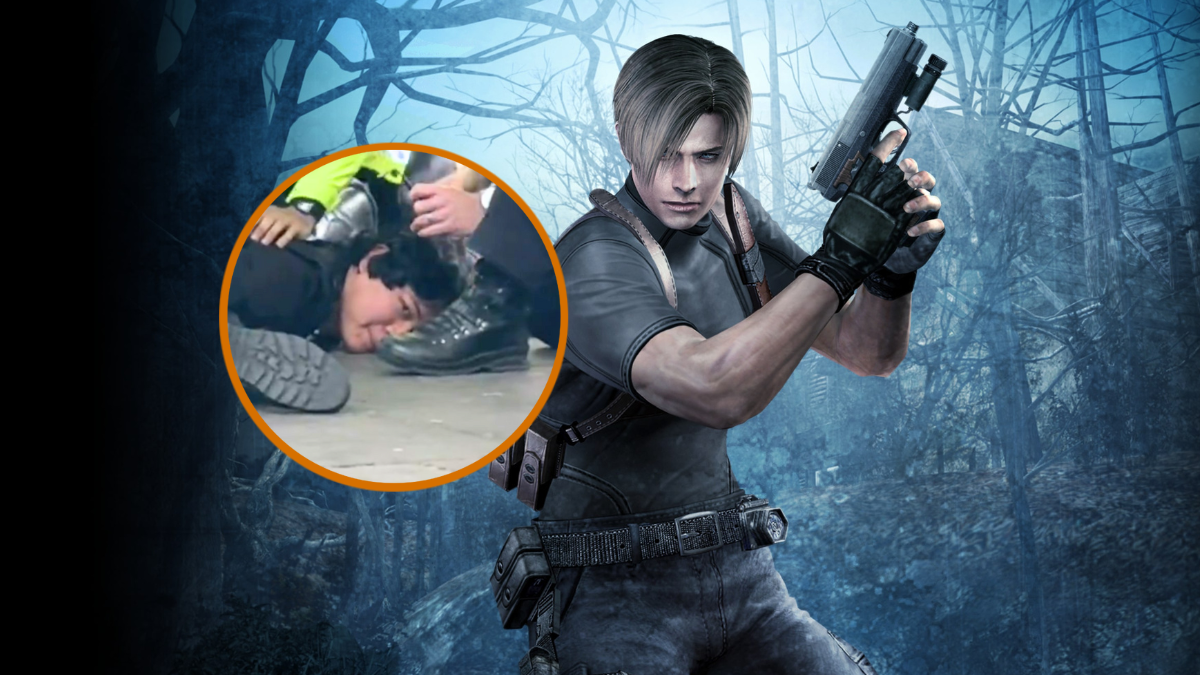
The end of the world, we meet again.
Skyshine Games, the studio responsible for Skyshine’s Bedlam, probably took one look at The Banner Saga, XCOM: Enemy Unknown, and FTL: Faster Than Light and said, “Yeah, we could copy that.” I jest, but only just. Skyshine’s Bedlam improves upon the concept pioneered by The Oregon Trail, where players lead a caravan across a barbaric landscape, managing resources and facing random calamities and confrontations. While you may not die from dysentery in this vivid apocalypse, mutants, cyborgs, and flesh-rotting fruit fulfill that role in and out of combat.
Shoot-outs borrow The Banner Saga’s tactical grid, where gunslingers, frontliners, deadeyes, and trenchers duke it out. Four warriors from each class assist players on their expedition, so a deadeye falling in battle hardly inconvenienced me – I retained three more competent snipers as backups. At the same time, I rarely grew attached to my infantry. Their copy-pasted protective armor means men and women look identical once they slip on their helmets, unless they join the veteran ranks after a few kills, painting their outfits in shades of red and white.
You can name champions after friends, family, or your idols, but each fighter’s backstory remains set in stone stone. A name such as Jon hardly fits a future with individuals called Guyger or Croffer anyways. Does Emma sound like someone that would surgically bind metal and wires to her face, or accept jobs as a long-range elimination specialist? The game’s heroes seem quite a peculiar bunch.
That said, I felt a twinge of helplessness watching a shotgun-carrying trencher exterminate the recruits I carefully cultivated. Merely a twinge because Skyshine’s Bedlam provides the tools to win most conflicts. One advantage: you can bring any number of soldiers to the battlefield, from one to six. I found skirmishes too easy as a result, even in the early phases of a run. My stress levels only erupted when I badly needed valuable resources. Deposits of fuel, food, and power cells lay scattered about the arena, and netting these bonuses will provide extra supplies for your cause should you prove victorious.
What’s more, you must waste an action – one of two per turn – to fetch these riches. After you spend your two actions, the enemy strikes back. I could never guess whether a group of angry mutants or cyborgs would go for the easy kill or set up a killzone for later. I commend Skyshine’s Bedlam for actually making me think, forcing me to consider the sanctuary of my soldiers or my population’s growing hunger. To rush or not to rush to those meat containers cells before my assailants steal them?

And yet the best part of Skyshine’s Bedlam tweaks the fights of its predecessors for the better. Most RPGs establish a battle’s turn order ahead of time, meaning players might suffer setbacks when they need to conjure a spell or attack a target, but cannot do so for several rounds. In Skyshine’s Bedlam, the two actions per turn go to the soldier (or soldiers) of your choosing. You could assassinate two mutants with your deadeye, collect sources of meat and crude as a frontliner, or position your gunslinger and trencher near cover. You always maintain control over your characters and largely – because shots never miss enemies loitering out in the open – a dispute’s outcome.
The firefights do require a couple adjustments, though. Elite adversaries, like the desperado Abe, will intimidate newcomers, since they annihilate all classes except frontliners in a single assault. I lost scout after scout until I grasped the basics of cover and luring my prey within range. An interactive prologue, not tutorial videos, would benefit rookies more. Thankfully, elites join your squad if you defeat them. I made sure to avenge each ally tenfold.
Classes also limit a soldier’s movement and attack range. You cannot choose where units spawn on the battlefield, and sometimes my snipers began within a few squares of mutants, cyborgs, or marauders, totally helpless due to their measly health and inability to walk more than two blocks at at time. I couldn’t blast my way out of danger, either, because deadeyes cannot shoot enemies unless they position themselves five squares away. Skyshine Games hindered me through no stupidity of my own.
I’ll screw myself over just fine, believe me.
Skyshine’s Bedlam is a roguelike, one much shorter than XCOM or The Banner Saga. I finished playthroughs in two hours when utilizing my armaments properly. My first few runs, I stumbled through battles blindly. I neglected the Dozer – the massive, on-wheels fortress that chauffeurs your population about the wasteland – and its weapons and equalizers.
The Dozer’s artillery bombards war zones. The primary projectile for the humans coats the ground with radioactive sludge, enraging everyone the goo touches. Enemies caught by the toxic slime even attack their allies – perfect for dwindling hostile numbers on the opposing side’s turns. Equalizers then buff your soldiers. They restore health to the wounded, minimize the damage that foes inflict, or allow units to move unseen. My favorite equalizer quadrupled my damage output for a turn. I practically cackled with joy watching my marksmen one-shot elites.

Artillery and equalizers consume power cells, one of three main resources your Dozer relies on. Power cells improve your Dozer’s efficiencies, reducing the amount of meat and fuel your population consumes per day, the weeks that units need to bounce back from their injuries, and the power cells required to activate a Dozer’s ordnance. Regulating these assets is an act of give and take I initially dreaded. By pouring all my points into those upgrades, however, I was soon swimming in gas, grub, and power cells, letting me focus my efforts on the firefights. Although combat is the only surefire means of refilling supplies, bringing fewer soldiers to the front lines guaranteed me twice the meat, crude, whatever.
You may also acquire resources while visiting the game’s random point of interests, which appear on the map as you traverse the remnants of Bedlam. A survey crew climbs a ridge and finds a shelter covered in dried yellow flash and thorny mutant shells. All warning signs said I should return to the Dozer, but entering the shack rewarded me with a corpse and a note detailing a buried artifact to be used during a later quest.
Players may stumble upon a translucent dome surrounding alien eggs. Hmm, mutant omelets. Of course, the mothers will not pardon you for disturbing their hatchlings. Time to find dinner elsewhere. A bright, bulbous fruit tastes delicious according to a couple dozen of the Dozer’s passengers. Can they say that after their skin slides off their bodies? Despite the pressure of the yearly review season, I devoted most of my playthroughs to these unique events. Those sentient vines strangled survivors before. Are you any different?
Not in the slightest. What turned the world into such a heartless wilderness? Asking players to piece together a plot sounds reckless unless your game’s title includes the words “Dark” and “Souls,” though I embraced the cryptic narrative – the mystery overrode irritation. The story is set in the Barren Age, where people still remember Chemisto Burgers, Majestic Industries, and the other companies that engaged in physical warfare for their consumers.
Conglomerates and the unstable operations called “black science” soon created the chaotic scenery of Bedlam, the forsaken outback that lies between Bysantine and the legendary Aztec City. Does it even exist? I leave the rest of the enigmatic plot points to you. In the meantime, it is the player’s duty as the Mechanic to guide a Dozer’s load of passengers to the fabled Aztec City and escape Bedlam’s self-imposed warlord, King Viscera.

Not that Bedlam’s factions make that goal easier. Scuffles steadily grow more difficult the longer you remain in the desert, and each gang bears a grudge against another. Whereas the rogue AI ignored me and my fellow humans until provoked, mutants were content to melt the flesh off our bones. Guess which group I favored. Cyborgs act aggressive towards trespassers, too, except marauders remain their sworn rivals. Navigating the marauder’s Dozer through cyborg territory prevented me from defusing situations peacefully.
New Dozers and their accompanying faction perks wait to be discovered in different territories, another carrot on the apocalyptic stick to keep fans playing. The marauders are the War Boys of Skyshine’s Bedlam, for example, and their Dozer wastes gallons of fine fuel before you unlock better crude conservation. Players still control human combatants no matter the transport they choose, but I just gained mastery over the normal difficulty fights. I’m content in not managing teleporting robots or mutants that restore one health to each soldier at the start of their turn.
Approaching a couple dozen hours already, I can’t put down Skyshine’s Bedlam, either. One of these days I hope to sit down and see every point of interest on the map, talk to every nomad, wage a war at each location, and recruit all the elites. Although I expect the game to become a breeze by then, tougher players will love Bedlam difficulty and a New Game Plus option. While I admit apocalypses are a dime a dozen in video games, Skyshine Games lovingly illustrates its own – like a Disney film with more black and yellow caution tape, thicker character outlines, and radioactive death. Mutants speak in cockney accents, too (mostly to utter insults), so view it as an insult to The Oregon Trail and its descendants if you miss Skyshine’s Bedlam, “ya’ ponce.”
This review is based on the PC version of the game, which we were provided.










Published: Sep 16, 2015 11:34 pm